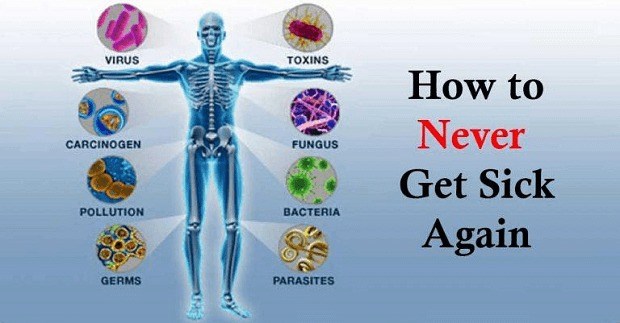The human immune system is our protector — its job is to defend the body against diseases and other damaging foreign bodies.The system works by first identifying alien bacteria, viruses, fungi and parasites lurking in the body, and then sends in its troops — white blood cells — to destroy the invaders and the tissues they infect.Your immune system is on the job around the clock to protect you from infectious bacteria, viruses, fungi, and parasites that cause disease, suffering, and death.
Our immune system hums with activity. Cells, tissues, and organs work together all through our body to coordinate attacks against invading pathogens. We can help to keep this system running smoothly and efficiently when responding to threats.The immune system is an extremely complex network of cells and molecules that researchers are still working to understand.
If it weren’t for our immune system, none of us would live very long. Not only does the immune system protect us from external pathogens like viruses, bacteria, and parasites, it also battles cells that have mutated due to illnesses, like cancer, within the body.
The immune system is made up of a network of cells, tissues, and organs that work together to protect the body against infection and maintain overall health.The immune system is being bombarded by all sorts of microbes all the time.The immune system is a complex network of tissues and organs that spreads throughout the entire body.
The human body is an optimal environment for pathogens, such as bacteria, viruses, fungi, and parasites to thrive. The immune system works to limit these microbes’ access to the body and prevent them from growing and causing illness.Your body has lots of ways to keep out offending bacteria and viruses. Take your nose, for instance.
Here are some fighting facts about the immune system
- Each part of the immune system has a unique function
- Vaccines play an important role in educating your immune system
- Every day, we encounter billions of germs, but they’re not all bad
- Stress can affect the way your immune system works
- Positive emotions and a healthy lifestyle may boost your immunity
- Sleep deprivation can impact immunity
- Allergies are the result of your immune system reacting to a false alarm
- Your immune system can attack itself
- Women are more likely to be diagnosed with autoimmune diseases
- Being too clean can inhibit your immune system from functioning properly
- Healthy ways to strengthen your immune system
- Eat a diet high in fruits and vegetables
- Vitamin D does more than strengthen your bones
- Zink offers both antioxidant and anti-inflammatory power
- Garlic does more than keep the vampires away
- Vitamin C has been on and off the immune-system-boosting
- Stay up to date with recommended immunizations
- Exercise regularly. Try to get 150 minutes of moderate activity a week
- Control your blood pressure
- If you drink alcohol, do so only in moderation
- Indulge your immune system with relaxation
- Help out with good hygiene habits
Feeling sick is the worst, and sometimes your body can’t fight off infections on its own. You should go see your doctor right away if you’re experiencing any of the following:
- A severe sore throat that lasts more than two days, along with a fever, headache, nausea or vomiting, or a rash
- A fever that gets worse or lasts more than three days
- A cough that lasts more than seven days or is chronic, especially if you have asthma, chronic bronchitis, or emphysema
- A cough with lots of phlegm (mucus) or with a headache or rash
- New symptoms or symptoms that get worse
- Symptoms that last more than seven days
Attempting to boost the cells of your immune system is especially complicated because there are so many different kinds of cells in the immune system that respond to so many different microbes in so many ways. Which cells should you boost, and to what number? So far, scientists do not know the answer. What is known is that the body is continually generating immune cells. Certainly it produces many more lymphocytes than it can possibly use. The extra cells remove themselves through a natural process of cell death called apoptosis — some before they see any action, some after the battle is won. No one knows how many cells or what the best mix of cells the immune system needs to function at its optimum level.
